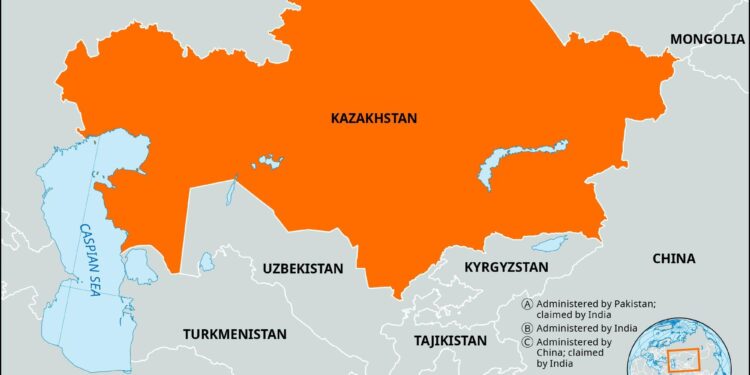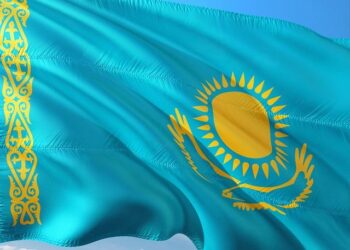Kazakhstan is actively pursuing a strategic uranium supply agreement with Finland, signaling a potential shift in the global nuclear energy landscape. As one of the world’s leading uranium producers, Kazakhstan’s move to deepen ties with Finland highlights growing interest in securing stable and diversified sources of nuclear fuel amid evolving energy demands. This developing partnership, reported exclusively by The Times of Central Asia, could have significant implications for both countries’ energy sectors and broader geopolitical dynamics.
Kazakhstan and Finland Initiate Talks to Strengthen Uranium Supply Chain
Kazakhstan and Finland have embarked on preliminary discussions aimed at fortifying their cooperation in the uranium supply sector, a move that could significantly impact global nuclear fuel markets. As the world’s leading uranium producer, Kazakhstan seeks to diversify its customer base and enhance its strategic partnerships in Europe. Meanwhile, Finland is keen on securing a reliable and long-term source of uranium to support its expanding nuclear energy program. Both nations recognize the mutual benefits of such collaboration, highlighting increased energy security and potential for technological exchange.
The talks focus on several critical aspects:
- Supply Stability: Ensuring consistent uranium delivery amid fluctuating global demand.
- Environmental Standards: Promoting sustainable mining and processing practices.
- Technological Cooperation: Joint research and development to improve efficiency and safety.
| Parameter | Kazakhstan | Finland |
|---|---|---|
| Uranium Production (2023) | 22,000 tonnes | Imported |
| Current Reactors | N/A | 5 Reactors |
| Planned Nuclear Capacity | N/A | Increase by 30% by 2030 |
Implications of Kazakhstan’s Uranium Export Strategy for Global Energy Markets
Kazakhstan’s burgeoning uranium export strategy signals a significant shift in global energy dynamics, particularly as the country seeks new partnerships beyond its traditional markets. By potentially forging a supply agreement with Finland, Kazakhstan aims to solidify its position as a pivotal supplier in Europe’s nuclear fuel ecosystem. This move not only diversifies Kazakhstan’s customer base but also offers European nations an alternative to Russian uranium supplies, reinforcing energy security amid geopolitical uncertainties. Analysts suggest that increased Kazakh exports to Europe could lead to competitive pricing pressure and encourage other uranium-producing nations to reevaluate their own distribution channels.
The strategic partnership between Kazakhstan and Finland could catalyze several transformative outcomes for global energy markets:
- Enhanced supply chain resilience: Reducing Europe’s dependence on a limited number of uranium sources.
- Market price stabilization: Greater supply diversity may mitigate volatility caused by regional conflicts or trade restrictions.
- Technological collaboration: Potential knowledge exchange on nuclear safety and sustainable mining practices.
Below is a comparative overview of Kazakhstan’s uranium exports against global figures, highlighting its growing market share:
| Country | Uranium Exports (tonnes, 2023) | Global Market Share (%) |
|---|---|---|
| Kazakhstan | 24,000 | 42 |
| Canada | 13,000 | 22 |
| Australia | 11,500 | 20 |
| Russia | 4,000 | 7 |
| Others | 5,500 | 9 |
Experts Recommend Strategic Partnerships to Ensure Sustainable Nuclear Fuel Access
Industry leaders and policymakers are increasingly emphasizing the need for strategic partnerships to secure a stable and sustainable supply of nuclear fuel. In light of global energy challenges and geopolitical volatility, collaborations between uranium-rich nations and technologically advanced countries are seen as essential to streamline supply chains and enhance fuel security. Experts argue that through long-term agreements and joint ventures, stakeholders can mitigate risks associated with market fluctuations, regulatory shifts, and logistical disruptions.
Such alliances often entail not only supply contracts but also knowledge sharing and technological cooperation. For example, Kazakhstan’s potential uranium supply deal with Finland exemplifies how countries can combine resource availability with advanced nuclear expertise to create mutually beneficial frameworks. The table below highlights critical factors driving the success of strategic partnerships in the nuclear sector:
| Key Element | Impact |
|---|---|
| Long-term commitment | Reduces market uncertainties |
| Technological exchange | Enhances reactor efficiency |
| Diverse supply routes | Improves logistical reliability |
| Regulatory alignment | Ensures compliance and safety |
| Environmental standards | Supports sustainable mining and use |
- Supply chain resilience: By linking producer and consumer countries, partnerships help absorb external shocks.
- Economic benefits: Joint ventures stimulate investment and job creation within partner nations.
- Innovation boost: Collaborative development accelerates nuclear technology advancements.
The Way Forward
As Kazakhstan and Finland continue discussions over a potential uranium supply agreement, the outcome could signal a significant development in Eurasian energy cooperation. Both nations appear poised to strengthen their strategic partnership amid shifting global energy demands and geopolitical dynamics. Further updates are expected as negotiations progress, with close attention from industry observers and international stakeholders alike.
















